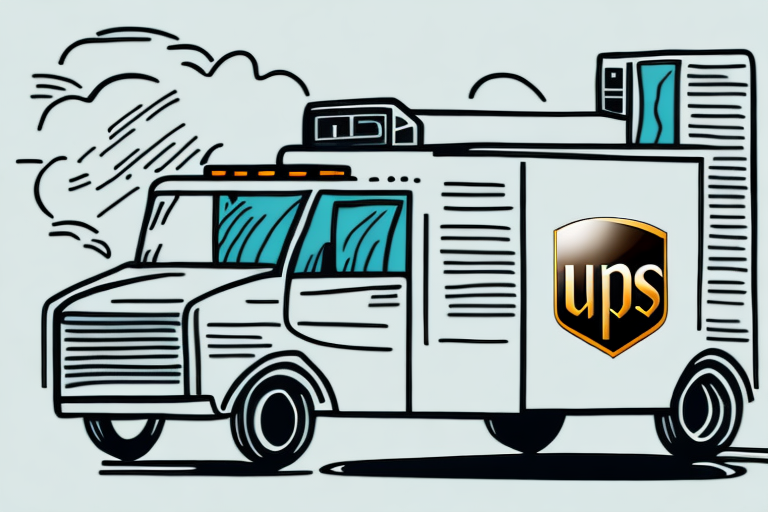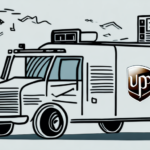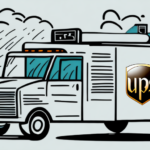How to Request a UPS Shipping Charge Correction for Ground Residential Third-Party Shipments
If you regularly rely on UPS Ground shipping for your residential third-party shipments, ensuring that you're charged accurately is crucial. Due to various factors, inaccuracies in UPS Ground shipping charges can occur. This comprehensive guide will walk you through the process of requesting a UPS shipping charge correction for your ground residential third-party shipments. We'll cover the reasons for corrections, how to identify inaccuracies, preparatory steps, and strategies to prevent future discrepancies.
Why Accurate UPS Ground Shipping Charges Matter
Accurate shipping charges directly impact your business's bottom line. Overpaying can erode profit margins, while underpayment may lead to service issues. Regularly auditing your shipping invoices ensures financial accuracy and operational efficiency.
Understanding the Differences Between Ground Residential Third-Party Shipments and Other UPS Shipping Options
Before initiating a UPS shipping charge correction, it's essential to comprehend how ground residential third-party shipments differ from other UPS services. These shipments are dispatched by a third party to individual recipients at residential addresses, contrasting with services like the UPS Store and UPS WorldShip, which cater more to businesses with different rate structures and policies.
Ground residential third-party shipments often have varying delivery times since local carriers, rather than UPS drivers, handle the final delivery. Additionally, these shipments may have distinct packaging and labeling requirements, making it essential to verify all details before dispatching.
Reasons to Request a UPS Shipping Charge Correction
Several scenarios may necessitate a UPS shipping charge correction:
- Enrollment Issues: If you're not enrolled in the UPS Billing Center, you might lack visibility into your shipping charges.
- Discrepancies in Billing: Even if enrolled, inconsistencies in your invoices compared to expected rates require correction.
- Volume Shipping Errors: Large volumes increase the risk of recurring billing mistakes, making corrections vital to prevent overpayments.
Addressing these discrepancies not only ensures financial accuracy but also helps identify potential inefficiencies in your shipping processes.
Identifying Inaccuracies in UPS Ground Residential Third-Party Shipping Charges
Detecting billing errors involves several steps:
- Invoice Review: Scrutinize your invoices for errors in weight, dimensions, or packaging details. Ensure all charges align with your shipment specifications.
- Compare Shipping Options: Contrast the costs of ground residential shipments with other UPS services to spot significant variances.
- Shipment Tracking: Utilize UPS tracking to verify delivery times and addresses. Delays or misdeliveries can indicate billing issues.
- Cost Estimation Tools: Use UPS’s online calculators to estimate shipping costs beforehand and match them against invoiced amounts.
According to a UPS Billing Analysis Tool, businesses can streamline this process by automatically detecting discrepancies.
Steps to Take Before Requesting a UPS Shipping Charge Correction
Proper preparation ensures a smooth correction process:
- Gather Documentation: Collect all relevant shipping records, including tracking numbers, package dimensions, and destination details.
- Contact UPS Support: Reach out to UPS customer service to discuss the discrepancy and seek guidance on the correction process.
- Review UPS Policies: Familiarize yourself with UPS's guidelines on billing corrections, such as the 15-day correction window post-invoice date.
- Verify Internal Records: Double-check your own data for any errors that might have led to the billing discrepancy.
Ensuring all information is accurate before submitting a request minimizes delays and increases the likelihood of a successful correction.
Requesting a UPS Shipping Charge Correction Online
The online method is the most efficient way to request a charge correction:
- Log into the UPS Billing Center.
- Select "Invoice Management" from the main menu.
- Choose "Invoice Dispute Manager" from the submenu.
- Identify the problematic shipment and provide the necessary details.
- Click "Submit Dispute" to finalize your request.
For bulk corrections, consider using UPS's Electronic Data Interchange (EDI)
If you prefer direct communication, you can request a correction via phone: Having all necessary information on hand ensures a more efficient resolution. Typically, UPS responds to charge correction requests within one to two billing cycles. However, complex cases involving numerous shipments may require additional time. Utilizing the UPS Billing Analysis Tool can expedite the process by providing detailed insights into your shipping charges. If UPS denies your request, follow these steps: Persistent discrepancies may warrant consulting with a shipping software provider or a logistics expert to optimize your shipping processes and reduce errors. Additionally, if you believe the denial was unjustified, you can file a complaint with the Federal Motor Carrier Safety Administration (FMCSA) to seek further resolution. Proactively managing your shipping processes can minimize the need for charge corrections: Implementing these strategies not only reduces the likelihood of billing errors but also enhances the overall efficiency of your shipping operations. Ensure that all recipient information is current and accurate. Outdated or incorrect addresses can lead to delivery delays and unexpected charges. Regularly updating your database helps maintain smooth shipping operations and minimizes the potential for billing errors. Training your staff on proper shipping procedures, invoice reconciliation, and the use of UPS tools can significantly reduce errors. An informed team is better equipped to handle discrepancies and maintain accurate records. If billing discrepancies persist, consider partnering with a logistics consultant to identify and address underlying issues in your shipping processes. Expert insights can lead to more efficient workflows and improved cost management. By diligently managing your shipping practices and utilizing available tools and resources, you can ensure accurate UPS Ground shipping charges, streamline your operations, and maintain healthy profit margins.Requesting a UPS Shipping Charge Correction Over the Phone
Response Time for UPS Shipping Charge Corrections
What to Do If Your Charge Correction Request is Denied
Tips to Prevent Future UPS Shipping Charge Corrections
Maintaining Up-to-Date Information
Educate Your Team
Consult with Logistics Experts





















